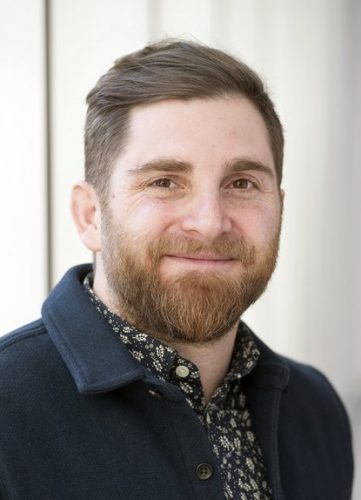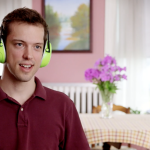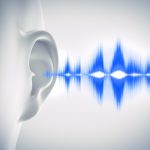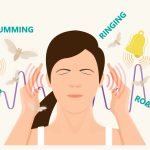Neuroscientist Daniel Polley, PhD, offers a unique perspective on ways scientists could approach therapies for untreatable sensory disorders like tinnitus or hyperacusis.
Neuroscience research is in a golden age, with scientists making never-before seen discoveries in animal studies and basic science. Advances in gene therapy and transcranial stimulation have captured headlines touting the next best drugs or high-tech devices that could one-day treat conditions rooted in the brain.
Unfortunately, many of the high-tech advances produced in the lab have yet to produce meaningful treatments in clinics. Treatments are sparse and often come with significant side effects and limitations. Currently there are few effective treatments for many neuropsychiatric disorders, and none for those that affect hearing, such as tinnitus and hyperacusis.
The disconnect between research advances in the laboratory and what’s currently available in the clinic has led neuroscientist Daniel Polley, PhD, director of the Lauer Tinnitus Research Center and Amelia Peabody Chair in Otolaryngology–Head and Neck Surgery at Mass Eye and Ear, to question whether high-tech approaches are the only answer to finding treatments for these conditions. What if the answer to some of these treatment questions was lying within the brain itself?
In a new perspectives piece published in Neuroscience & Biobehavioral Reviews, Dr. Polley calls on researchers to investigate more “low-tech” approaches to tap into the brain’s inherent plasticity — or its’ capacity to modify itself — to retrain the brain. Such approaches might lead to long-elusive treatments for complex sensory conditions like tinnitus or hyperacusis, he argued.
“You don’t want to put all your eggs in one basket,” Dr. Polley told Focus. “I don’t subscribe to the idea that putting an electrode or drug into a brain is always going to be more effective than leveraging the brain’s indwelling system to rehabilitate itself.”
Unearthing the root of complex sensory conditions

Tinnitus and hyperacusis are two of the most challenging hearing conditions to treat, and both can dramatically impact a person’s daily life. Tinnitus is a sensory condition that causes people to hear sounds in their head or ears that aren’t actually there. Hyperacusis is a sensitivity to noise that can cause people to hear sounds louder than they are. Little is known about the underlying causes of tinnitus and hyperacusis and why they can be the source of debilitating distress and anxiety in some people but not others.
According to Dr. Polley, these conditions reflect auditory overload, in which the world of sound becomes overwhelming to sufferers. Both conditions may arise from abnormal signaling between the ear and the brain but the core of these disorders lies in auditory processing centers of the brain. Therefore, scientists need to identify new neurological biomarkers, or biological markers of these disorders in the brain, he said.
However, much of recent neuroscience research has focused on so-called “downstream” biomarkers in the brain. Downstream biomarkers are biological signs of disease symptoms. For example, Parkinson’s disease is a neurological disease that causes tremors, and drug studies might look at reducing tremors by targeting a downstream biomarker. But these studies are not addressing what causes Parkinson’s in the first place.
For that, scientists would need to better understand and identify “upstream” biomarkers in the brain that are more closely linked the neurological factors causing the disease to occur and more promising targets for future therapies. Dr. Polley argues that the distinction between upstream and downstream biomarkers applies to a wide range of neuropsychiatric conditions.
Identifying these upstream biomarkers would enable researchers to come up with more targeted treatments that may retrain the brain and prevent the symptoms from occurring. At Mass Eye and Ear, Dr. Polley his team are researching the upstream biomarkers for tinnitus and hyperacusis. Using diagnostic tools like fMRI or EEG scans, his team is examining the brain in close temporal proximity to a patient’s behavior, such as when the patient experiences tinnitus.
Putting a low-tech therapy approach to practice
What might a low-tech therapeutic approach to rehabilitate the brain look like? One can look towards one established therapy for psychiatric conditions as an example.
Cognitive behavioral therapy (CBT) is highly utilized for treating psychiatric disorders. In CBT, therapists work with patients to recognize their negative feelings and thoughts and teach them how to change them into positive thoughts and healthy actions. CBT is a well-established therapeutic approach used for tough-to-treat disorders ranging from depression, anxiety, addiction, severe mental illness and pain.
Several companies have successfully adapted CBT into software, typically in the form of computer games. Dr. Polley feels the same tactic can be used to come up with computerized ways to treat sensory hearing disorders.
His team has previously shown the feasibility of this approach by computerizing auditory rehabilitation tools designed to aid people with hearing loss. A study led by Dr. Polley showed that a computer game his team designed can help improve people’s ability to discern speech in a noisy environment. That study included elderly subjects with hearing loss, who were trained for eight weeks on the game. The researchers found their speech-in-noise intelligibility improved by 25 percent with the program – more than three times the benefit of subjects’ hearing aids in noisy background environments.
For tinnitus and hyperacusis, behavioral agonists in the form of computer games could target an abnormal brain biomarker with the intent of shifting it towards a more “neurotypical” state.” That in turn would target the indwelling neuromodulatory systems that regulate brain plasticity. In essence, these games could retrain the brain to not recognize the ringing or loud noises caused by auditory overstimulation.
“Such tools hold great potential, and more research should look at these paradigms to harness the value of using the brain’s untapped plasticity,” said Dr. Polley. “This is a rich and promising area for research, and fresh ideas and approaches are profoundly needed.”
Read more of Dr. Polley’s thoughts in his column, recently published in Neuroscience & Biobehavioral Reviews. (subscription required).




Dr. Polley: This was a very interesting article. I have had tinnitus for a long time, but recently, as of August 2022, I have been diagnosed with TMJ (which came out of nowhere). The TMJ has enhanced my Tinnitus tremendously, unfortunately. White noise helps at night when I sleep, but the tinnitus is there 24/7 now. Most of the time, it sounds like my heart beating in my ears/head. I may be going to MGH Maxillofacial Oral center for TMJ consultation, but the TMJ pain has subsided a lot, while the Tinnitus has gotten worse. I would like to learn more about the Mass Eye and Ear Tinnitus Mgt Program.
Tim Fram, 9-16-2022
Hi Tim, thanks for reading and your comment. Patients interested in the Tinnitus Management Program can contact the program directly at 617-807-7844 or be referred by their Mass Eye and Ear Doctor.
Is there any hope for someone who woke up one day with complete hearing loss in both ears? This along with tinnitus in both as well. It was recommended to me to get a concular implant. And now I have the amplified sounds of tinnitus. It is very difficult to live like this
I have a severe case of tinnitus. I’ve had it for two years now. It never goes away. And it’s becoming even louder now. I am desperate for help. I’ve tried the basics. White noise, sound bearing hearing devices, many Doctors etc…
Should I try Mass Eye and Ear?
Thank you